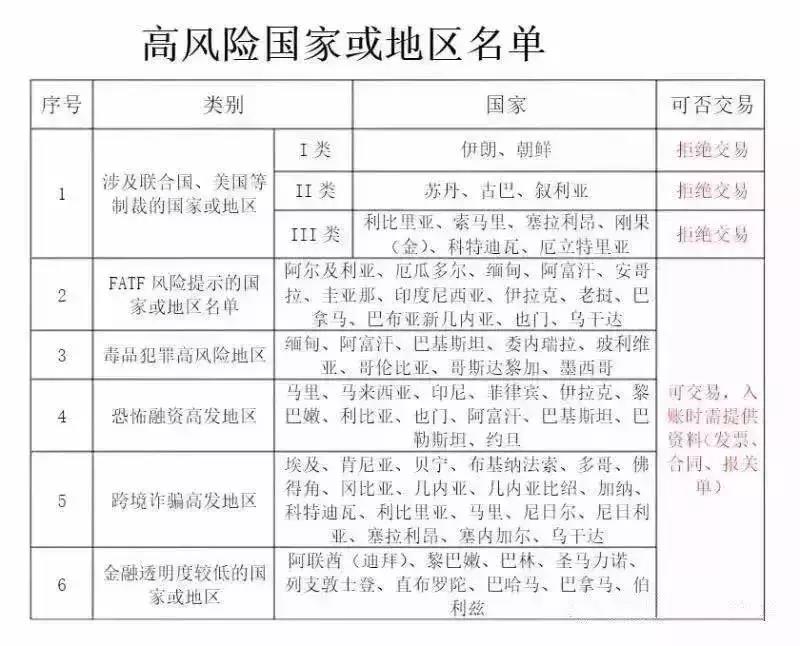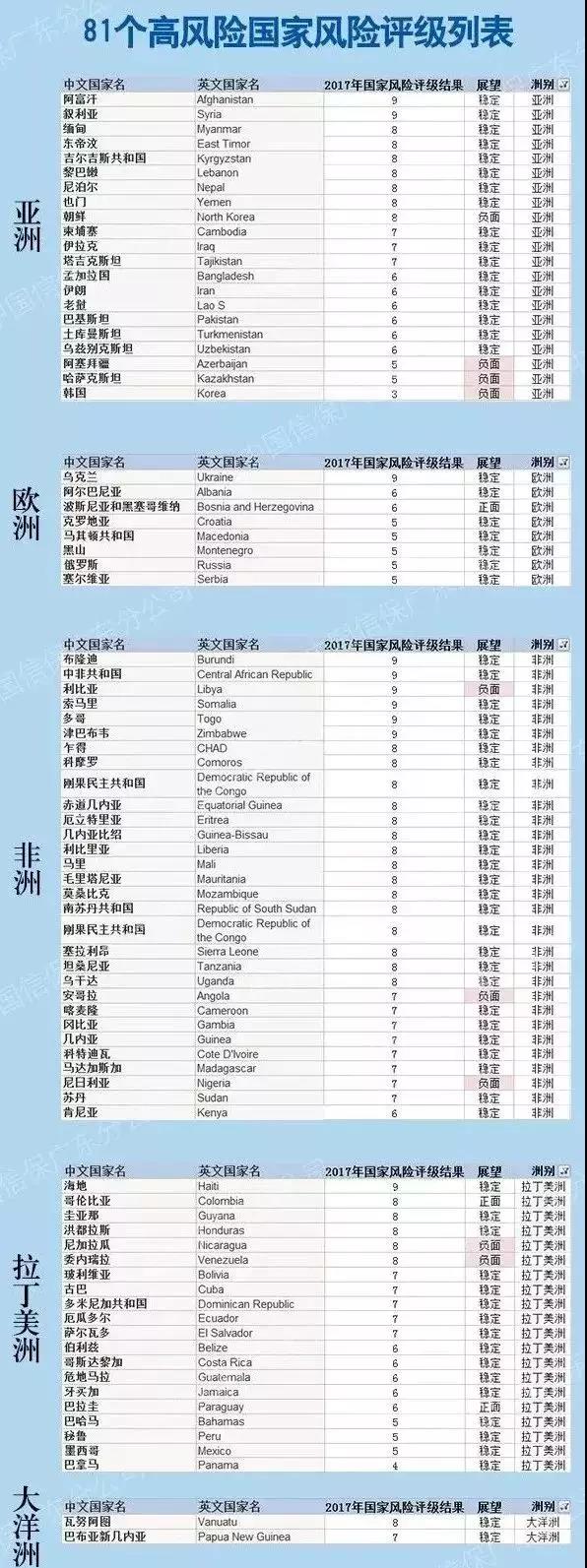Watch out for Payment in These 81 Countries
2018-08-08 weien
As the first US sanctions against Iran are about to take effect (effective on August 6th), the Iranian exchange rate has decelerated. Up to July 29th, the actual inflation rate in Iran has soared to 203%, the highest since October in 2013.
Last week, Turkey was also threatened by US sanctions. The Turkish currency Lira exchange rate fell from 1 dollar exchanging 4.75 lira to 1 dollar exchanging 4.91 lira in a short period of time. The Turkish lira made the longest record of continuous decline.Under the pressure of US sanctions, Russia’s oil, natural gas, and coal exports have all been hit badly. For example, the share price of Russia’s aluminum company has plummeted by 55%, and it lost 31 billion RMB in 48 hours.The most important impact of economic sanctions on foreign traders is that the payment is difficult to collect, and even can’t enter the account!Why does the Chinese bank can’t receive the US dollars from the remittance with only the customer’s countries sanctioned by the United States?
Because international trade must comply with the relevant laws of our country and take International practices into account. Banks are really sensitive to the flow of money in high-risk areas. If they are found, they will be punished or their account would be closed.
Check whether the foreign exchange can be collected normally.
If you are in normal trade with a high-risk country or region, be sure to check in advance and ensure that the foreign exchange is smooth. Please refer to the following methods for verification:
First, let the customer pay a deposit to see if the bank can be credited. If he is an old customer who has recently traded and there is a normal accounting experience, it can be relatively flexible. But paying a deposit is definitely better, On the one hand, reducing customer credit risk. On the other hand, it can keep up with changes in overseas sanctions and banking policies.
Secondly, after obtaining the customer and the payment bank, check the sanction/risk information of the customer and the payment bank and look down the available .
Prepare to respond to risks
◆ Regularly keep a watchful eye on the list of high-risk countries and change at any time.
◆ For countries/entities that are explicitly included in the sanctioned list, it is generally not recommended to continue trading.
◆It is recommended to agree in writing with the customers that they should pay the remittance bank verified to be normal in order to avoid unnecessary risks and disputes.
◆ If it is a payment method of DP (payment delivery), make sure that the US dollar is placed after the account is placed.
◆ Purchase export credit insurance and pass the risk.
Four types of high-risk countries or entities


◆ Countries subject to UN/US sanctions
They are Including Iran, Sudan, North Korea, Syria, and Cuba. These five countries are subject to UN/US sanctions, and most domestic banks refuse to handle any international business of these countries.
◆ Entities subject to unilateral sanctions by the United States and the European Union, etc.
For example, Russia is one of them. In recent years, the United States and the European Union have adopted a series of sanctions against Russia's defense, finance and energy industries. According to the query, there are as many as 94 Russian banks (including branches) currently on the US sanctions list, including Moscow Bank, one of the country's largest banks.
◆ Countries that are not sanctioned but are suspected of providing financial services to sanctioned entities
For example, the United Arab Emirates (mainly the three emirates----Dubai, Abu Dhabi, Sharjah), Saudi Arabia, Turkey and other countries. US dollar payments from these countries are suspected of providing financial services to high-risk individuals/organizations (such as Iran, ISIS) and may be verified by the United States. Some domestic banks will initiatively check in order to avoid spreading things.
On July 1st this year, the most stringent anti-money laundering regulations in history were implemented. During the same period, some domestic banks began to investigate the US dollar remittances abroad, especially in Turkey and the United Arab Emirates, attracting exporters.
◆ Unsanctioned but high risk countries
For example, they include Turkey, Pakistan and other countries. The internal political situation in these countries is unstable, and it is highly likely that they will be sanctioned if they leave the United States. Be cautious about the business of these countries.


